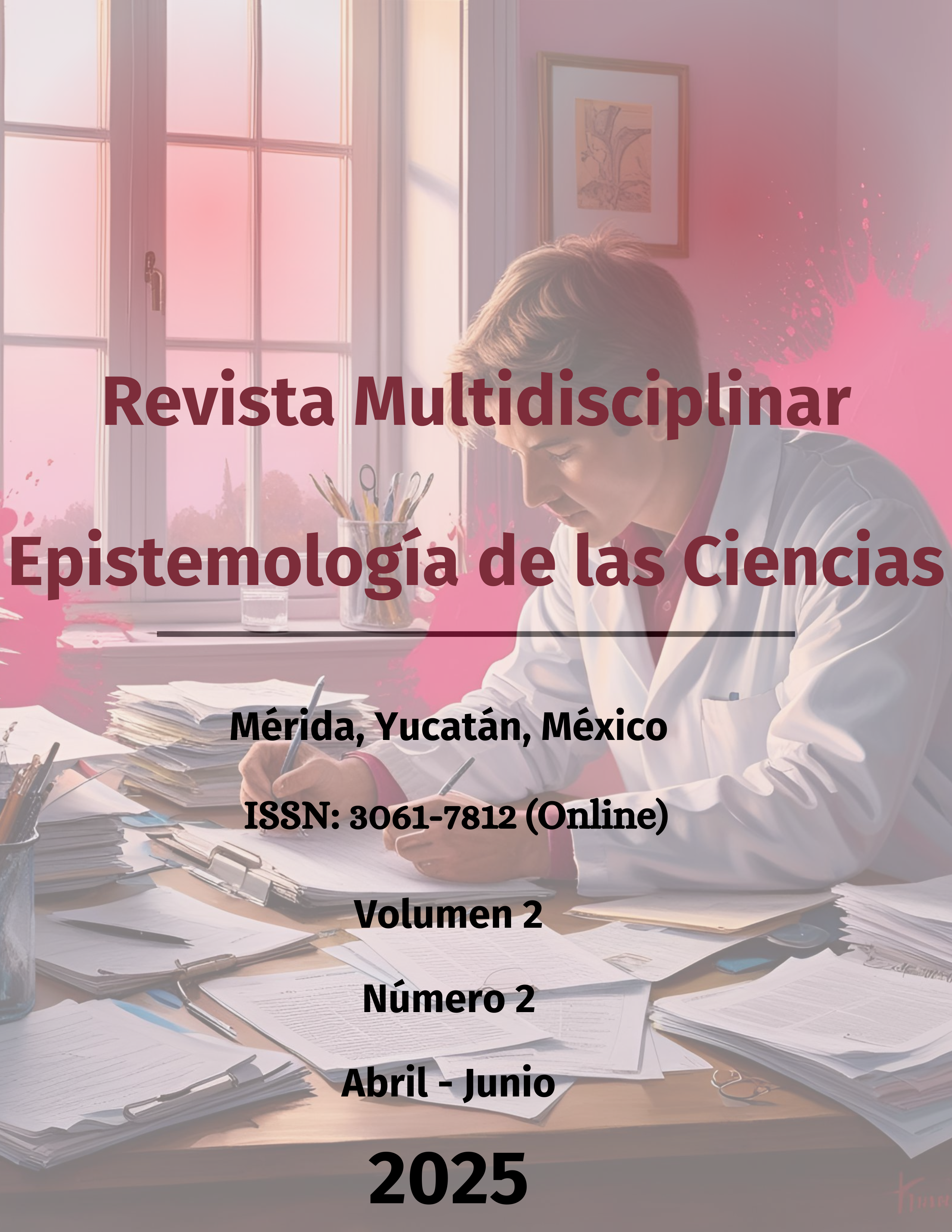Artificial intelligence as a teaching resource in the teaching and learning process
DOI:
https://doi.org/10.71112/vqb1zx28Keywords:
artificial intelligence, education, ethical challenges, didactics, ethicsAbstract
The purpose of this essay is to analyze the implications of artificial intelligence (AI) in education, considering its potential and challenges. AI has the power to transform teaching, enabling personalized learning and improving the monitoring of student performance. Its implementation raises ethical, pedagogical, and didactic questions about the role of the teacher and the dehumanization of the educational process. AI can democratize access to educational resources, although the digital divide remains an obstacle, especially in low-resource settings. The use of educational technologies must be balanced to avoid reinforcing social inequalities. AI should complement, not replace, the work of teachers, who remain a crucial axis in the teaching process. Continuous teacher training is essential to manage these tools ethically. Future lines of research are proposed, focusing on the design of AI systems that promote critical pedagogy, the evaluation of the impact of AI on the development of critical thinking, and the reduction of the digital divide.
Downloads
References
Baker, R., y Smith, K. (2023). Bias in educational algorithms: Implications for marginalized students. Journal of Educational Technology, 31(2), 45–58.
Baker, T., y Smith, L. (2023). AI in education: Addressing inequalities. Educational Technology Review, 45(3), 12–29.
Chan, R. (2023). AI-graffiti: A new frontier of academic dishonesty in the age of generative AI. Journal of Educational Ethics, 15(2), 45–60.
Domínguez Lara, S., y Lingán Huamán, S. (2022). Deshonestidad académica en educación superior: Dimensiones y propuestas de intervención. Revista Iberoamericana de Educación, 88(1), 120–135. https://doi.org/10.1344/ANPSIC2022.52/3.2 DOI: https://doi.org/10.1037/t89272-000
Freire, P. (2020). Pedagogía de la autonomía: Saberes necesarios para la práctica educativa (3ª ed.). Paz e Terra.
García, M., López, P., y Rodríguez, T. (2022). Inteligencia artificial y diversidad sociocultural: Retos para una educación inclusiva. Revista Latinoamericana de Tecnología Educativa, 21(3), 89–104. https://doi.org/10.59814/resofro.2024.4(2)215 DOI: https://doi.org/10.59814/resofro.2024.4(2)215
García, R., y Rodríguez, L. (2021). IA y entornos de aprendizaje adaptativos: Una revisión crítica. Educación y Tecnología, 12(4), 55–70. https://doi.org/10.21556/edutec.2024.89.3577 DOI: https://doi.org/10.21556/edutec.2024.89.3577
Gómez, A. (2022). Evaluación ética de la inteligencia artificial en educación. Revista de Pedagogía Crítica, 19(1), 33–48. https://doi.org/10.5944/ried.25.2.32332
González, F., Martínez, E., y Sánchez, M. (2021). El rol docente ante la inteligencia artificial: Entre la tecnología y la humanización. Educación XXI, 24(2), 210–230. https://doi.org/10.37811/cl_rcm.v9i1.15772 DOI: https://doi.org/10.37811/cl_rcm.v9i1.15772
Huang, X., Li, J., y Wang, Y. (2021). Personalización del aprendizaje mediante IA: Eficiencia y desafíos. International Journal of Artificial Intelligence in Education, 31(1), 112–129.
Jiménez, C. (2023). Integración de la IA en el aula: El caso de Málaga. Comunicar, 31(67), 77–85. https://doi.org/10.55420/2693.9193.v14.n1.186 DOI: https://doi.org/10.55420/2693.9193.v14.n1.186
López, M., Hernández, R., y Díaz, N. (2022). Evaluación automatizada y equidad: Una mirada crítica. Revista de Innovación Educativa, 14(3), 45–60.
López, M., y Hernández, R. (2023). IA y educación: Equilibrio entre tecnología y humanidad. Tecnología, Ciencia y Educación, 18(1), 99–115.
Martínez, J. (2022). La IA en educación: Entre la panacea y el riesgo. Revista Iberoamericana de Educación a Distancia, 25(2), 201–220.
Martínez, J. (2023). Chatbots educativos: Democratización del acceso al conocimiento. Pixel-Bit: Revista de Medios y Educación, 67, 150–165.
Pedro, F., Subosa, M., y Rivas, A. (2022). Brecha digital y educación en contextos vulnerables. Revista de la UNESCO sobre Educación en América Latina, 10(1), 25–40.
Pérez, L. (2022). Privacidad y datos estudiantiles en la era de la IA. Revista de Derecho y Tecnología Educativa, 7(2), 88–102.
Rodríguez, P. (2023). Deshumanización educativa: Riesgos de la dependencia tecnológica. Educación y Humanismo, 25(44), 1–15.
Sánchez, A., y López, M. (2021). Formación docente para la integración ética de la IA. Revista Electrónica de Investigación Educativa, 23(1), 1–12. https://doi.org/10.5944/ried.25.2.32332 DOI: https://doi.org/10.5944/ried.25.2.32332
Tapia Tovar, C., Orenday Tapia, M., y Gómez Flores, P. (2023). Percepciones estudiantiles sobre la deshonestidad académica: Un enfoque sociocultural. Revista Mexicana de Investigación Educativa, 28(97), 789–810.
Vera Rojas, M., Guzñay, L., y Ponce Naranjo, J. (2017). Práctica docente crítica: Fundamentos teóricos y transformación educativa. Revista Andina de Educación, 5(1), 22–35.
Downloads
Published
Issue
Section
License
Copyright (c) 2025 Multidisciplinary Journal Epistemology of the Sciences

This work is licensed under a Creative Commons Attribution 4.0 International License.











